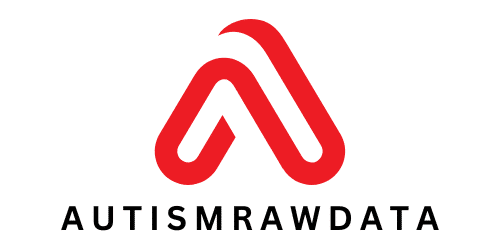The aging process has been associated with various health challenges, and poor nutrient absorption is one of them. As you age, your body’s enzymatic function may decrease, leading to digestive difficulties. A potential solution that has been gaining traction is the use of digestive enzyme supplements. This article aims to explore whether these supplements can help improve nutrient absorption in the elderly. Our examination will draw on information and studies from trusted sources such as Google Scholar and PubMed.
Understanding Digestive Enzymes
Before delving into the specifics of digestive enzyme supplements, it’s key to understand what digestive enzymes are and their roles in the body, particularly the gut.
A découvrir également : What Specific Strains of Probiotics Are Beneficial for Immune System Health in Older Adults?
Digestive enzymes are proteins that your body produces to help break down the food you eat into usable nutrients. They are secreted by different parts of your digestive system, including the mouth, stomach, and pancreas. The pancreas, in particular, is a crucial source of numerous digestive enzymes.
Pancreatic enzymes are essential for the digestion of fats, proteins, and carbohydrates. When you eat food, it’s these enzymes – lipase, proteases, and amylase – that convert food into small, absorbable molecules. But, as you age, the production of these enzymes may decrease, and the functioning of your gut might also decrease. This is where digestive enzyme supplements come in.
Lire également : How Can Scent-Free Workplace Policies Benefit Individuals with Chemical Sensitivities?
The Role of Digestive Enzyme Supplements
Digestive enzyme supplements are over-the-counter medications designed to aid digestion by supplementing the body’s natural enzyme production. As they replicate the action of enzymes produced by the body, these supplements can theoretically help break down food more effectively, leading to improved nutrient absorption.
The use of these supplements is particularly relevant for elderly individuals who may struggle with nutrient absorption due to decreased enzyme production. Reduced enzyme function can lead to a variety of digestive symptoms, including gas, bloating, and constipation. By helping to break down food more efficiently, digestive enzyme supplements may alleviate these symptoms and ensure that the body receives the nutrients it needs.
Studies on Digestive Enzyme Supplements
A number of studies have examined the effectiveness of digestive enzyme supplements, primarily focusing on their ability to alleviate digestive symptoms and improve nutrient absorption.
A study published in the International Journal of Food Sciences and Nutrition and available on PubMed, used a controlled trial to evaluate the effectiveness of a specific digestive enzyme supplement in improving nutrient absorption in the elderly. The study found that supplementation significantly increased the absorption of carbohydrates and proteins, but not fats.
In another study, available on PMC, researchers evaluated the impact of pancreatic enzyme supplementation on fat digestion in elderly individuals with exocrine pancreatic insufficiency (EPI), a condition characterized by insufficient enzyme production. The study found that enzyme supplementation significantly improved fat digestion in these individuals.
While these studies indicate potential benefits, more research is needed to fully understand the efficacy and safety of digestive enzyme supplements in the elderly.
Probiotics, Digestive Enzymes, and the Gut
The gut is a complex ecosystem, home to trillions of bacteria (the gut microbiome), which play a crucial role in digestion and overall health. Alongside digestive enzymes, probiotics are another key factor in this ecosystem.
Probiotics are live bacteria and yeasts that are good for your health, especially your digestive system. They help keep your gut healthy by maintaining a balance of good and bad bacteria. Some research suggests that combining probiotics with digestive enzyme supplements can further enhance digestion and nutrient absorption.
A study available on Google Scholar found that a combination of probiotics and digestive enzymes significantly improved digestion and absorption of nutrients in elderly individuals. However, this is a relatively new area of research, and further studies are needed to fully understand the potential benefits and mechanisms of this combined approach.
Are Digestive Enzyme Supplements Right for You?
While there’s promising research suggesting digestive enzyme supplements can benefit those with digestive issues or nutrient absorption difficulties, it’s important to approach this topic with some caution. Not everyone may need or benefit from these supplements, and in some cases, they could cause side effects.
If you’re considering digestive enzyme supplements, it’s recommended to first consult with a healthcare provider, who can evaluate your specific needs and potential risks.
Remember, while supplements can help, they are not a substitute for a balanced diet and healthy lifestyle. The primary way to support your digestive health and nutrient absorption is through eating a diet rich in a variety of fruits, vegetables, lean proteins, and whole grains, staying hydrated, and maintaining a regular physical activity schedule.
In conclusion, the use of digestive enzyme supplements is a promising avenue for improving nutrient absorption in the elderly. However, more research is needed, and individual factors must be considered. Always consult with a healthcare provider before starting any new supplement regimen.
Effects of Digestive Enzyme Supplements on Immune System and Side Effects
The immune system of the elderly is often weakened due to age and various health conditions. Interestingly, some studies speculate a potential link between digestive health and the immune system. The rationale behind this is that optimal nutrient absorption, ensured by efficient digestion, can provide the necessary resources to support the immune system’s function.
A PubMed free article explored the potential effects of digestive enzyme supplementation on the immune system. The researchers suggest that good gut health, resulting from efficient digestion, could positively influence the immune system. However, they stressed the need for more extensive research to confirm these findings and understand the complex interactions between digestion, nutrient absorption, and immune health.
Another aspect to consider when discussing the use of digestive enzyme supplements is the potential for side effects. Some individuals may experience abdominal pain, diarrhea, or nausea when initiating enzyme supplementation. These side effects usually subside once the body adjusts to the new supplement.
However, more severe side effects can also occur, particularly if supplements are taken in excessive amounts. Overdosing on these enzymes can lead to hyperuricosuria and hyperuricemia, conditions marked by abnormally high levels of uric acid in the urine and blood, respectively.
Therefore, it’s essential to consult a healthcare provider before starting any new supplement regimen. They can provide personalized advice based on an individual’s health status and needs.
Lactose Intolerance and the Role of Digestive Enzymes
Lactose intolerance is a common condition, particularly in the elderly population. It refers to the inability to digest lactose, a sugar found in milk and dairy products. This inability is due to a deficiency in lactase – an enzyme that breaks down lactose in the digestive system.
Interestingly, some digestive enzyme supplements contain lactase, making them potentially beneficial for individuals with lactose intolerance. These supplements could help break down lactose, alleviating the uncomfortable symptoms associated with lactose intolerance, such as gas, bloating, and diarrhea.
A placebo-controlled study available on Google Scholar evaluated the effectiveness of lactase supplementation in individuals with lactose intolerance. Participants who received the enzyme supplement reported a significant reduction in symptoms compared to those who received a placebo.
Although promising, these findings should be interpreted with caution. Lactose intolerance varies greatly among individuals, and what works for one person may not work for another. Therefore, it’s recommended to consult with a healthcare provider to determine if lactase supplementation is suitable.
Conclusion
This article has explored the potential of digestive enzyme supplements to improve nutrient absorption in the elderly, drawing from various sources such as Google Scholar and PubMed. The research suggests that these supplements can alleviate symptoms of poor digestion, enhance nutrient absorption, and possibly influence the immune system. The use of lactase supplements could also help manage symptoms of lactose intolerance.
However, more studies are required to validate these findings and understand the long-term effects and potential side effects of these supplements. Furthermore, individual factors, including overall health status, existing conditions, and specific nutrient requirements, must be taken into account.
If considering digestive enzyme supplements, it’s crucial to consult with a healthcare provider who can provide personalized advice. It’s also essential to remember that supplements are not a substitute for a balanced diet and healthy lifestyle. The primary way to support digestive health and nutrient absorption is through a varied diet, hydration, and regular physical activity.






